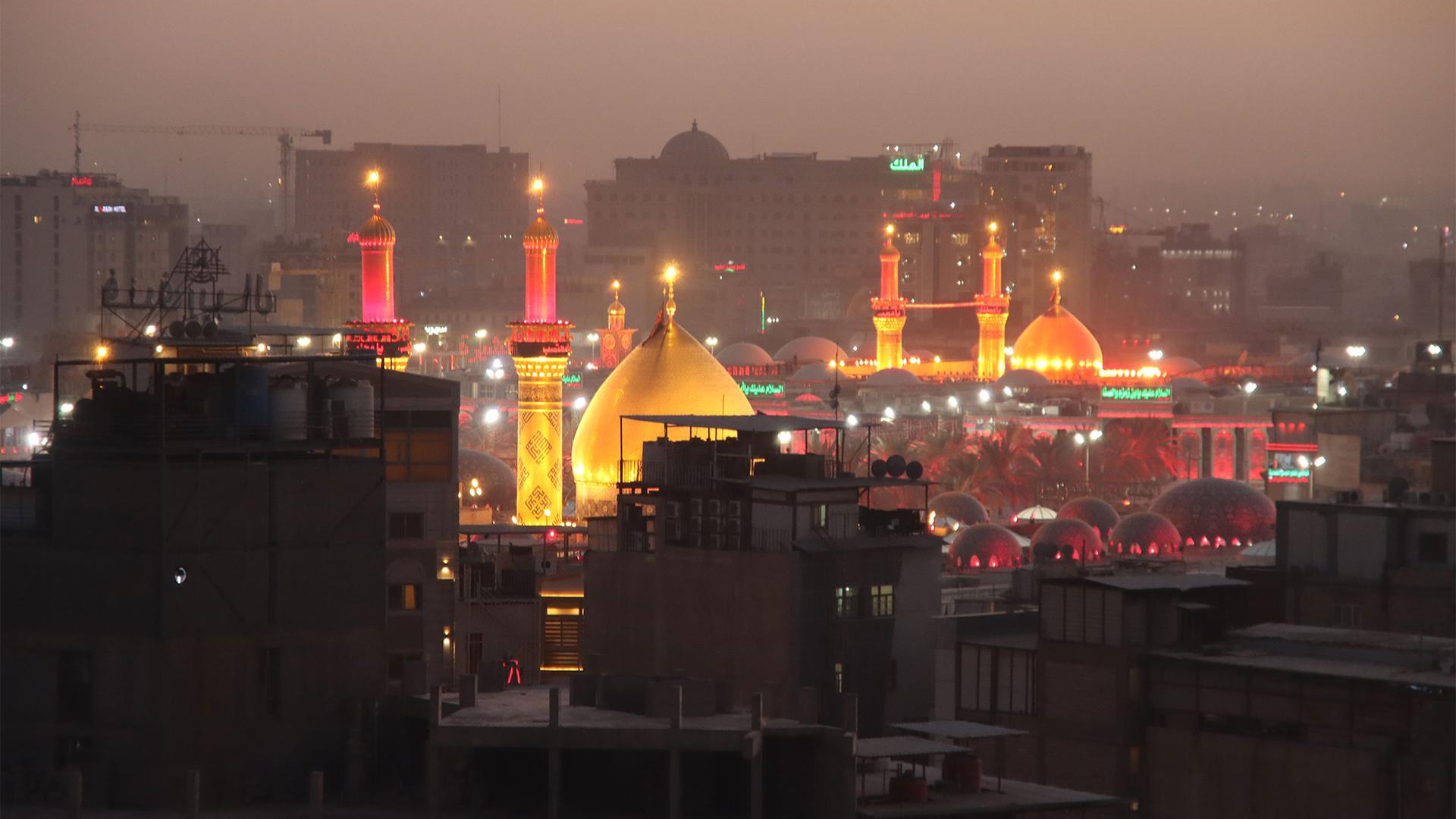‘I can get close to God’: Millions from around the globe participate in religious Arbaeen walk in Iraq
Editors note: This story was first published on Sept. 6, 2023.
Kaneez Fatima Alvi and Lissith Diaz from Colombia are among the millions of people who have made the journey to Iraq this year to take part in the annual Arbaeen walk.
It’s one of the world’s largest-annual religious gatherings. This year, officials predict around 28 million people are expected to participate.
“I hope, first I can do it because this is really different,” Alvi said. “The heat, the culture.”
The heat is a major factor when Arbaeen falls in the summer. Temperatures can reach up to 116 degrees Fahrenheit during the day, so many people choose to do the walk at night.
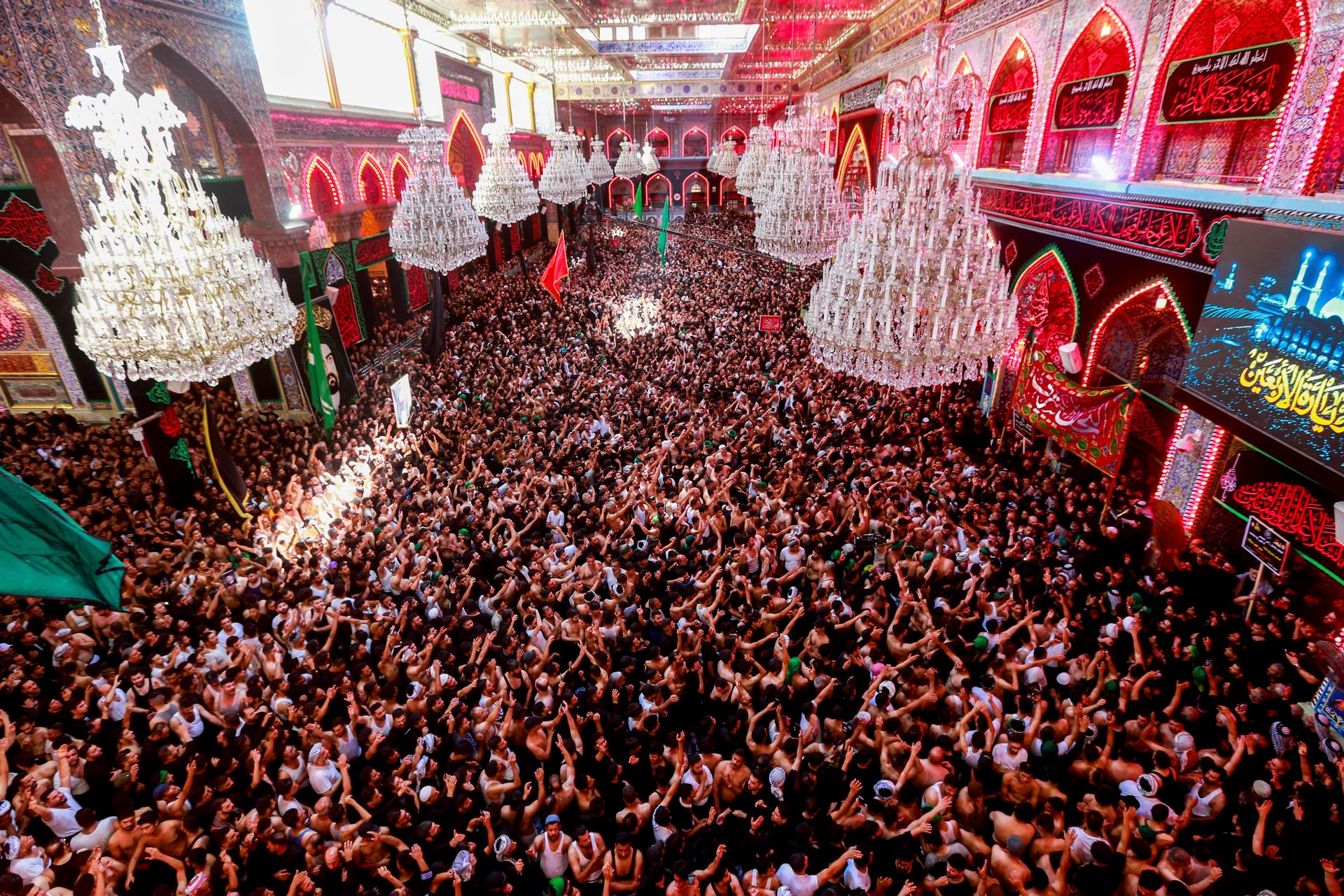
“You feel something really different in your heart, in your mind, like all your body, like experience and different energy,” said Alvi, who became Muslim about a decade ago, and has been to Iraq once before.
This, however, is her first time doing the walk.
Diaz, who converted last year, added, “I feel that being here I can understand better. I can get close to God.”
Both women are wearing black, like everyone else on the walk — the color of mourning — to mark the somber event. Arbaeen, which means 40 in Arabic, marks the 40th day of mourning after Ashura, the day that Prophet Muhammad’s grandson, Husayn, was killed in the year 680 by an army of the ruling Umayyad caliphate.
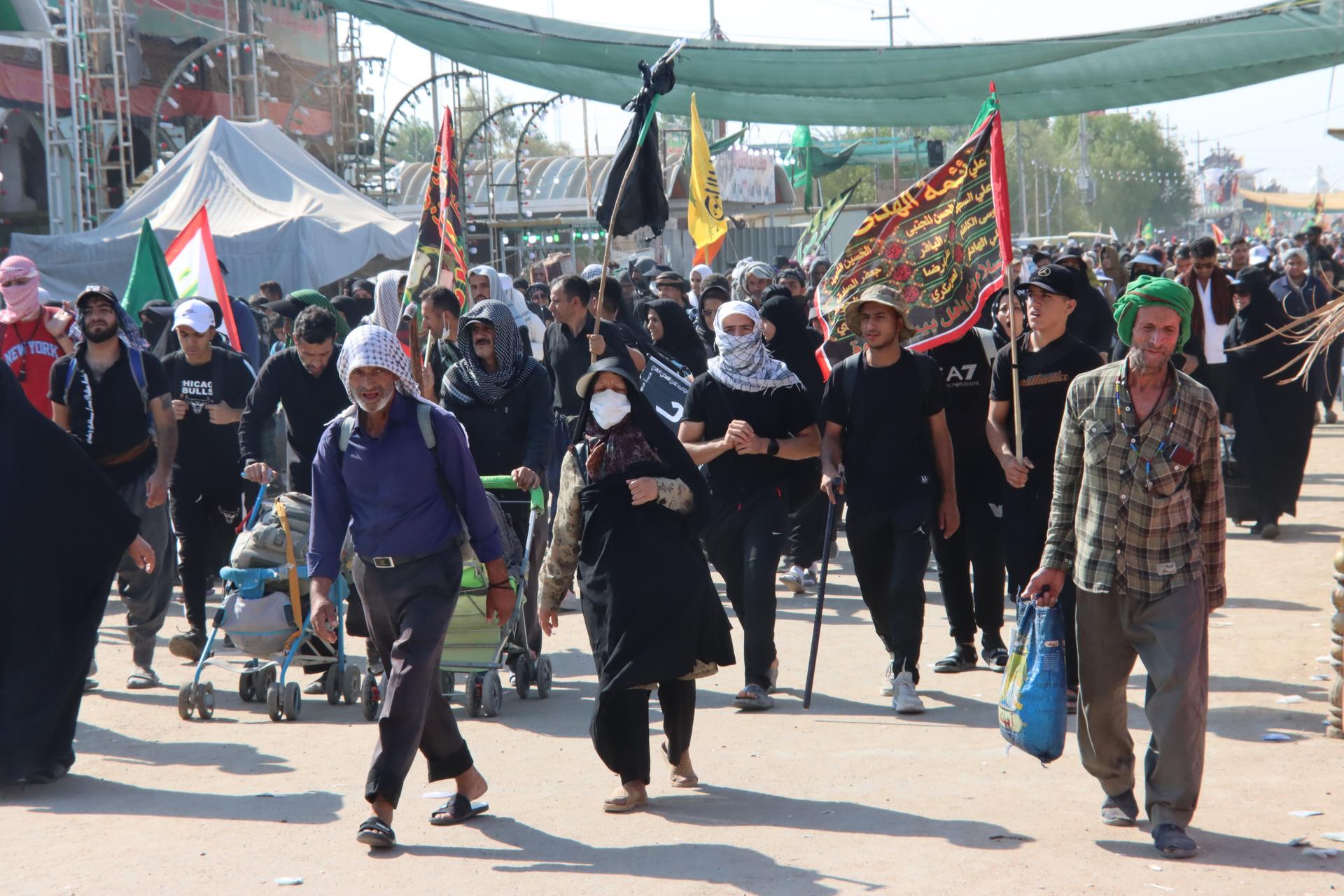
Today, the walk can start from anywhere. But most people begin in the city of Najaf until they get to Karbala — nearly 50 miles away — where Husayn is buried.
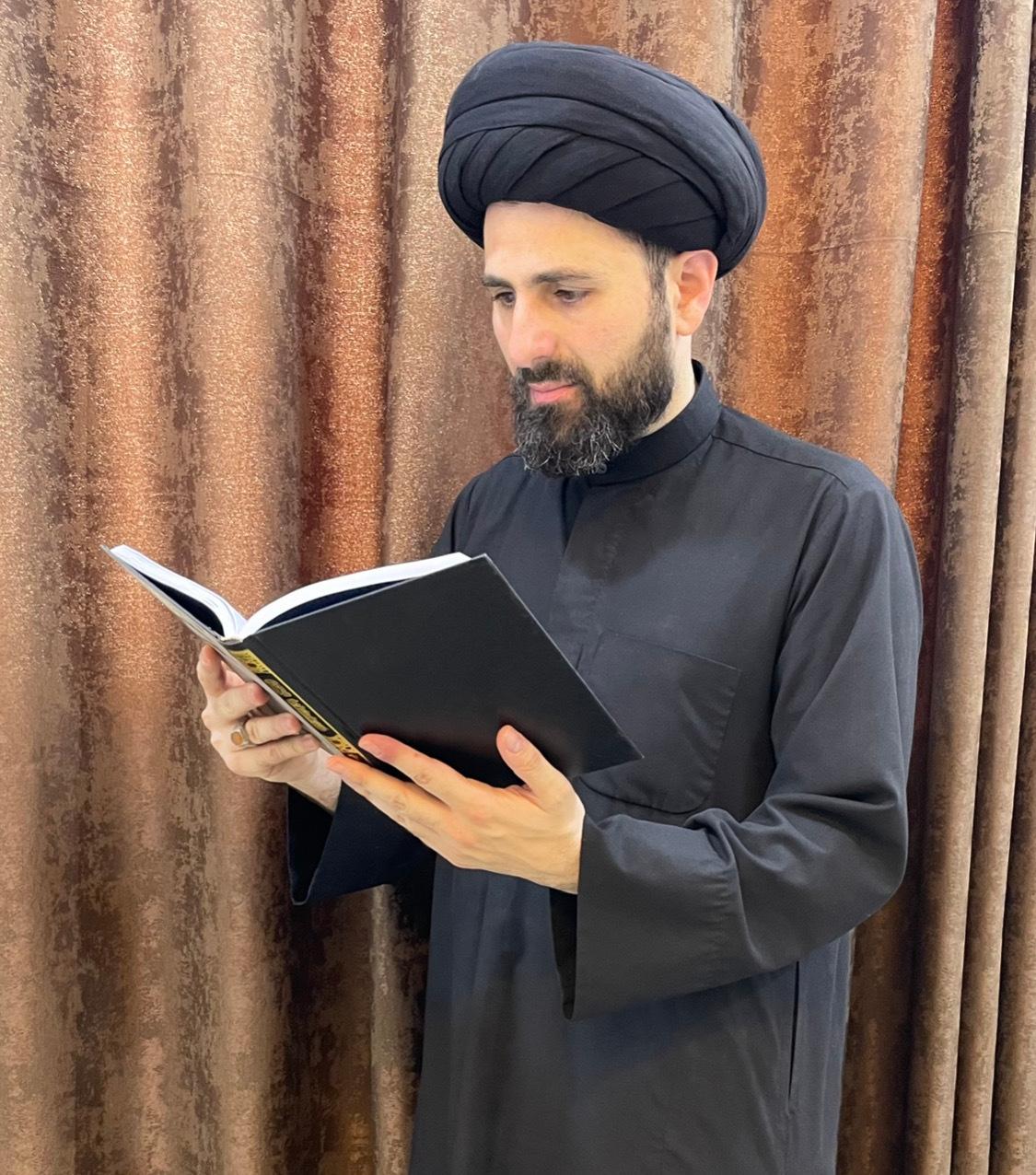
Along the Najaf-Karbala road, you can see just over a thousand markers, each about 160 feet apart, leading the way.
Story of justice and sacrifice
“The Arbaeen walk is not an obligation on Muslims, like the pilgrimage to Mecca [for the annual Hajj pilgrimage] is,” Sayed Mohammed Baqer Qazwini explained.
He’s living in Najaf right now, but is an assistant imam in Dearborn Heights, Michigan.
“However, the prophet’s family highly recommended Muslims to visit Imam Husayn in Karbala after his martyrdom. They wanted to preserve his legacy because Imam Husayn represents justice, freedom. He rose to say no to the dictator of his time. He rose to say no to injustice.”
It’s this story of justice and sacrifice that inspires many people during Arbaeen. The walk was even banned during the time of Saddam Hussein, because people would use the occasion to assemble and challenge his government.
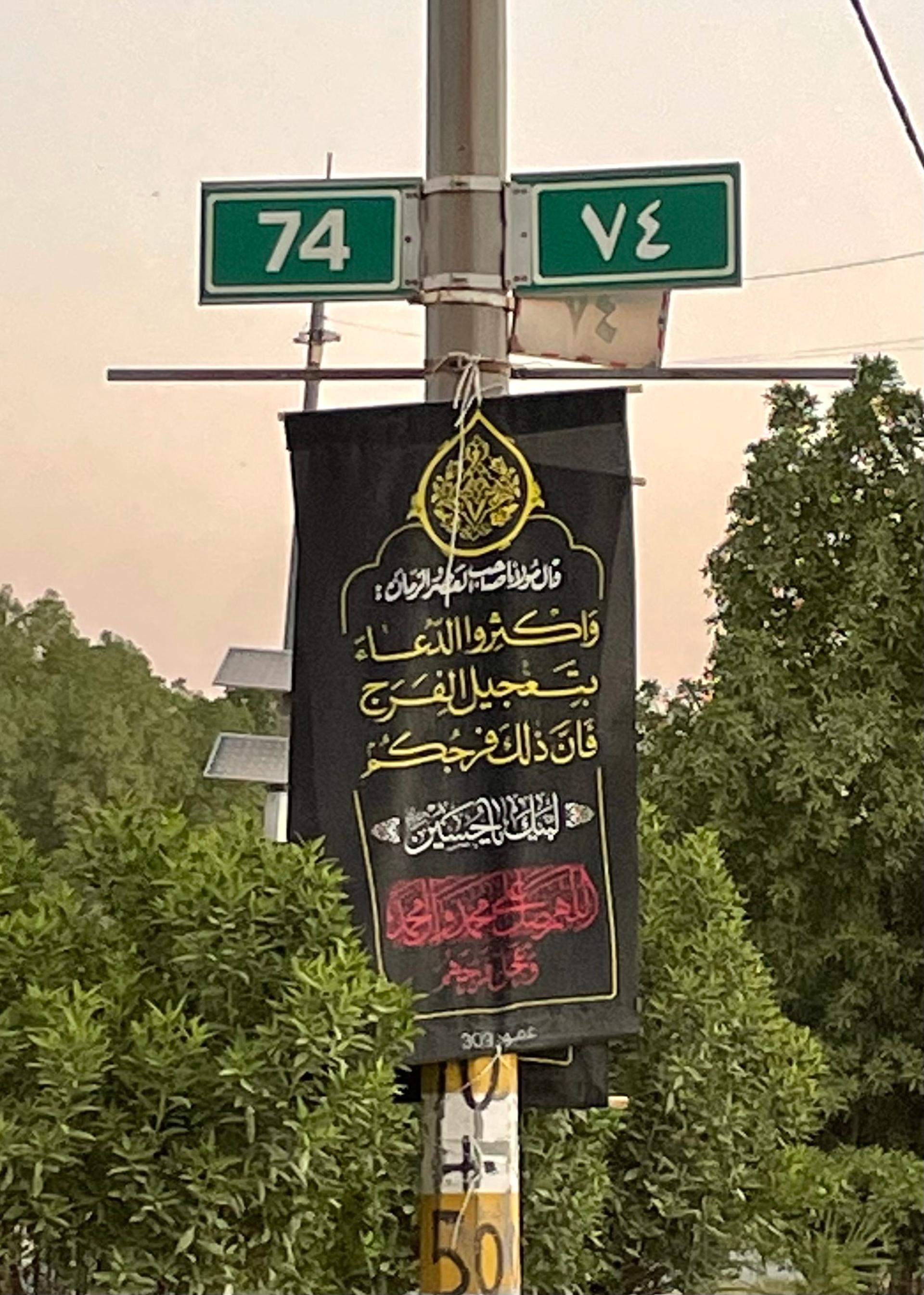
Imam Husayn’s sacrifice also inspires the many acts of charity and service throughout the walk.
In 2019, UNESCO declared the hospitality offered during Arbaeen an intangible cultural heritage of humanity.
One group, Imamia Medics International, has been traveling to Iraq for 15 years to give free medical and dental services.
Qasim Jaffry is a consultant urologist and one of the group’s directors. He’s been based in Ireland for more than two decades. He said that their 24-hour camps are available for those on the walk, as well as for local Iraqis.
“Some of them would be sick from before, and they may have forgotten their medication or this Arbaeen visit may have exacerbated their diseases, and some of them get sick while they’re here,” he said.
Jaffry said that since their first year, they’ve treated about 750,000 patients. Their services include cardiology, internal medicine, dermatology, gynecology, urology, pain management and dental services.
Local hospitality
Some local Iraqis even open up their homes to the visitors.
Shaykh Hassan al-Mas’udi is a local Iraqi tribe leader.
“Every year, I provide all of the services to welcome the pilgrims visiting Imam Husayn and provide hospitality in the form of food and drink, and also showers and bathrooms, and I also put out mattresses here for them to sleep on,” he said.
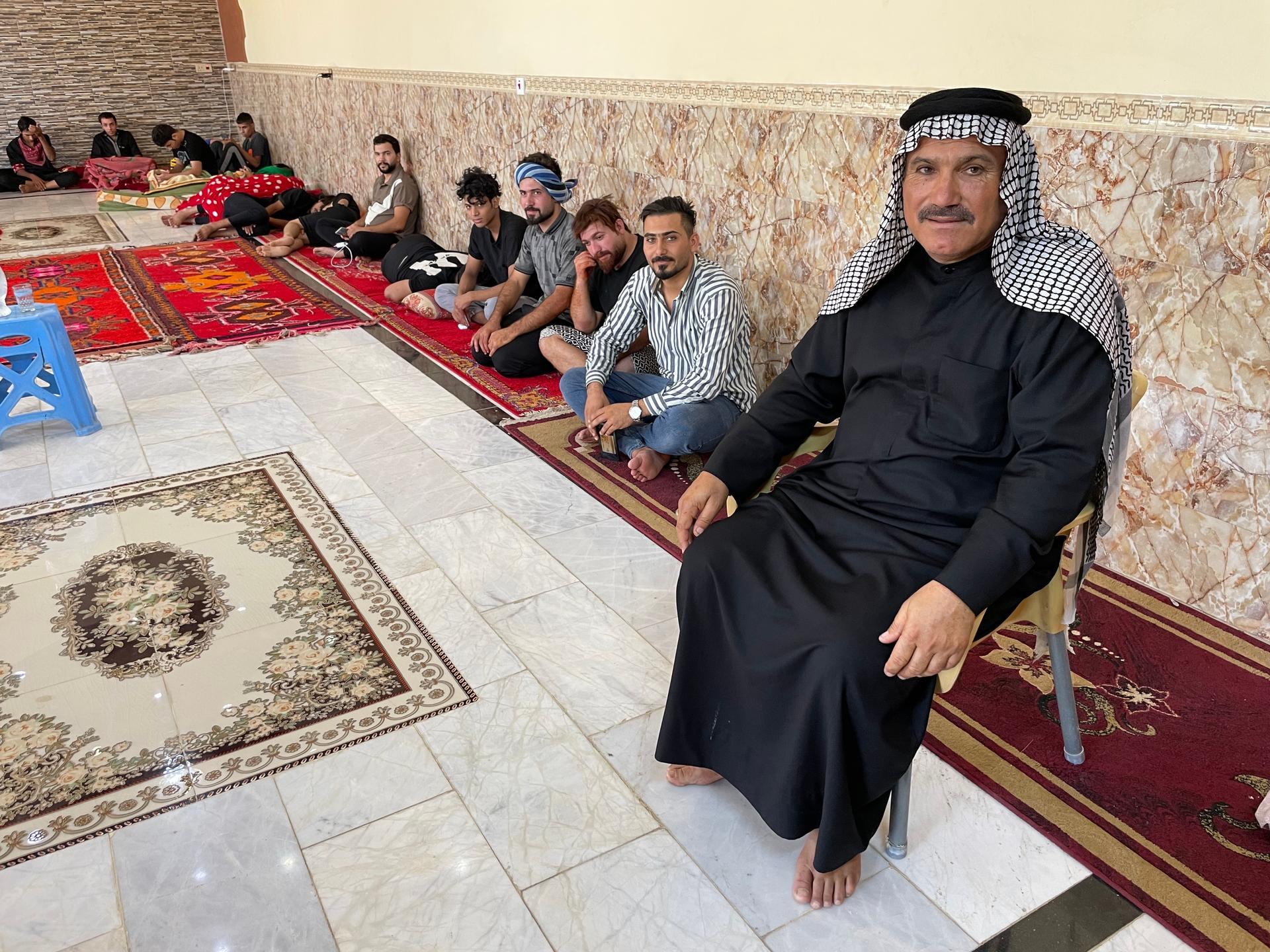
There are more than a thousand stations, or mawkibs, where people can rest.
Along the walk itself, everything is free. People set up and sponsor stalls along the walk that hand out water, meals and tea and provide various services.
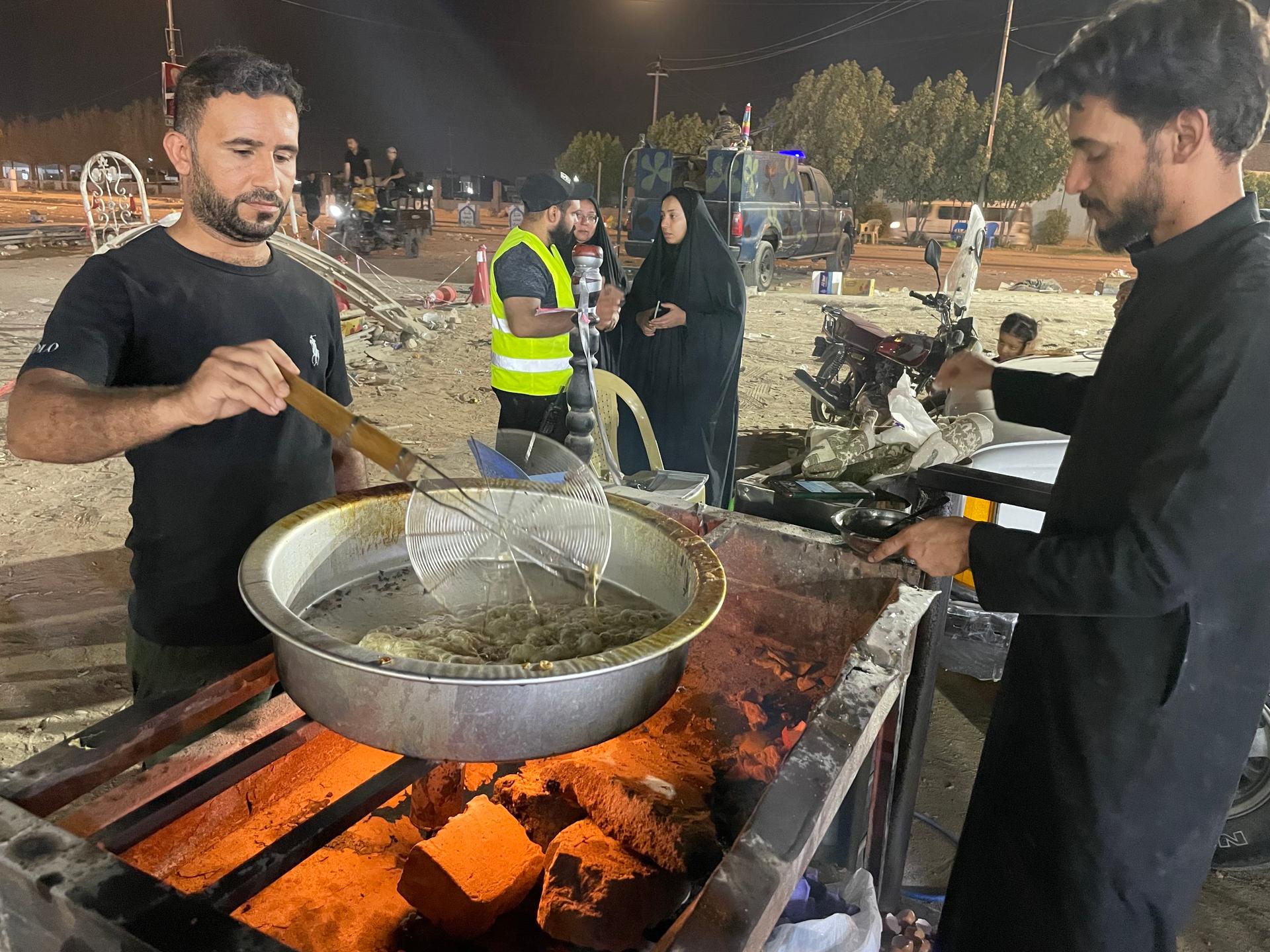
One woman was even repairing people’s bags that had worn out during the walk.
There are also people offering free foot massages for those on the walk.
Zain Fatema Bhurani comes every year from India.
“Some people don’t wear any shoes, and they are in so much pain,” she said. “So, we feel like they are getting some of the comfort and relief from our hands.”
They even have a physiotherapist on hand for more serious problems. Bhurani travels with other women. And they pay for their own flights to give free massages to people on the walk.
“Money never comes to our minds,” she added. “And the prayers which we get from the visitors is priceless.”
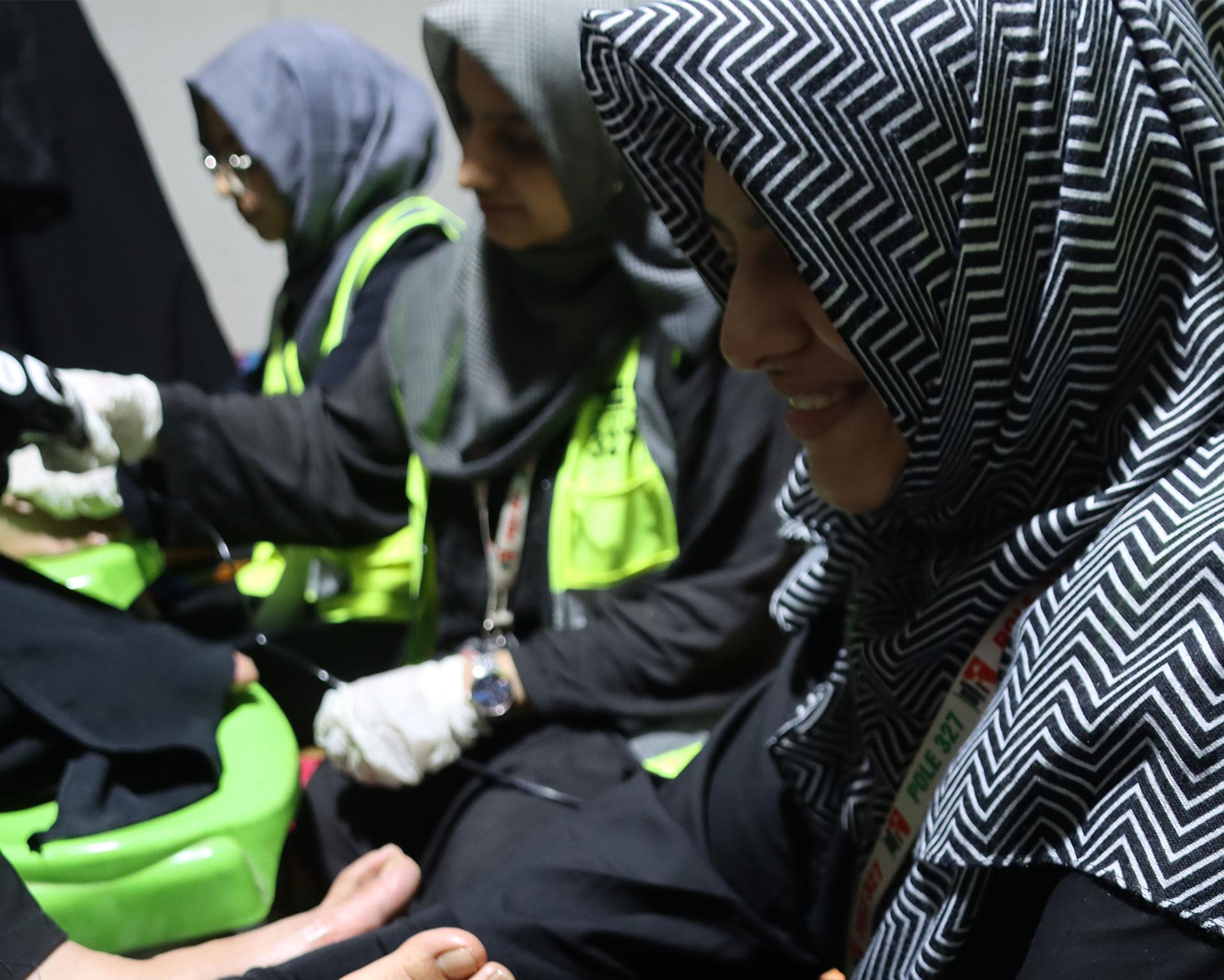
This year, the Iraqi government offered free visas for four new countries: Pakistan, Lebanon, Yemen and Afghanistan. It also includes Iran, but it’s not the first time for them.
The overwhelming majority of people who participate in the Arbaeen walk are Shia Muslims. But it is not limited to Shias or even Muslims. Some Sunnis participate and even Christians and Hindus have taken part.
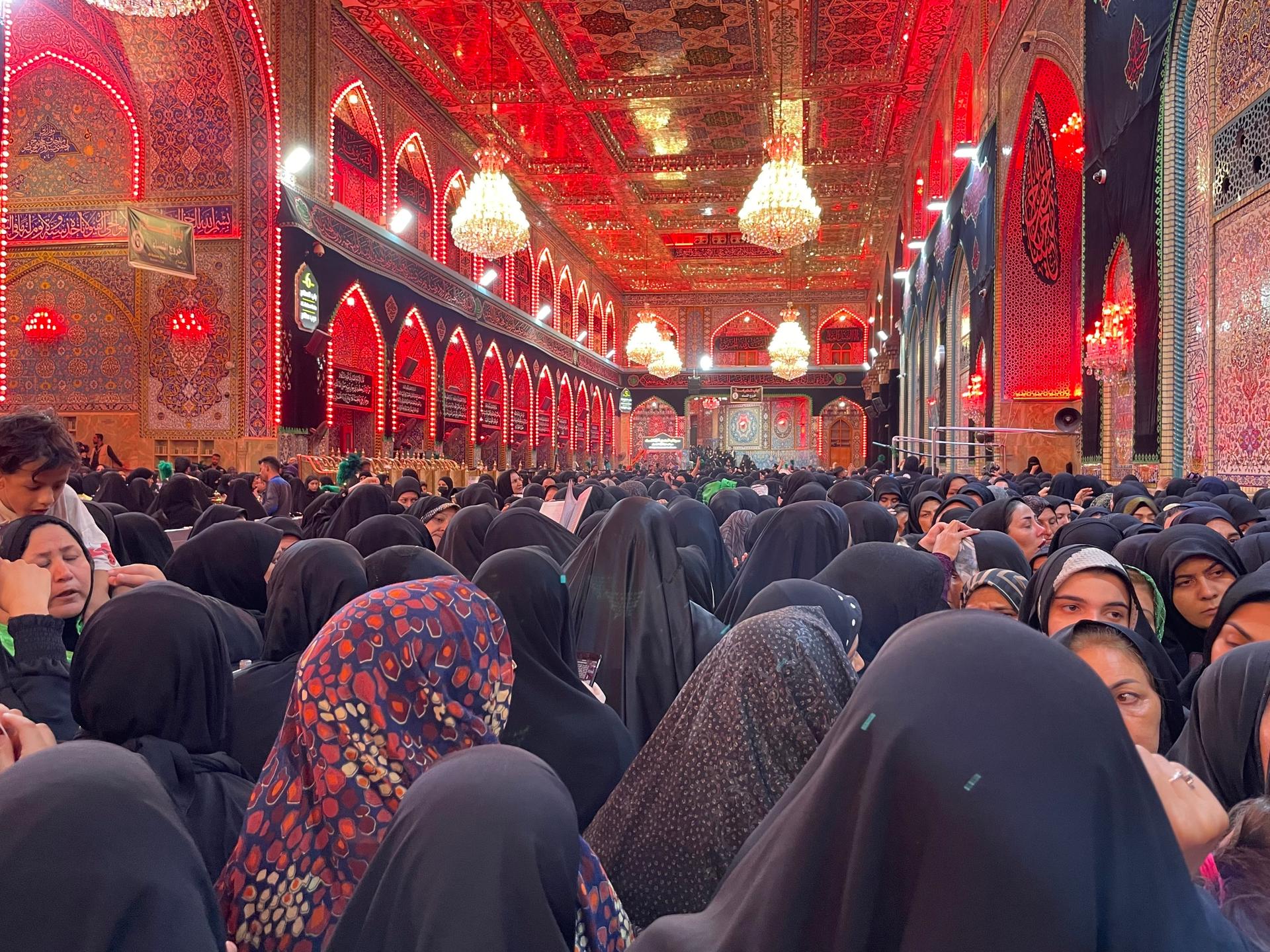
Salil Abbas, who is part of a group that came from the UK, said he spoke with a group of Christians who walked last year. He asked them what they thought.
“And they said, ‘We’ve never seen people give things away the way that the lovers of this imam and this leader of yours are giving away. We have never seen selflessness of this kind anywhere. And it is an inspiration to see this.’”
That inspiration is what the people on the walk take back home with them afterward to continue serving others.
Related: Iraqi author Ghaith Abdul-Ahad on the ‘unbuilding’ of Baghdad
We want to hear your feedback so we can keep improving our website, theworld.org. Please fill out this quick survey and let us know your thoughts (your answers will be anonymous). Thanks for your time!
